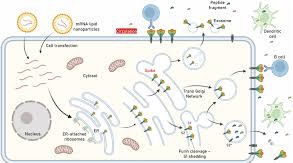
Vaccines Myths: Facts on Autism, Ingredients, and Immunity
Vaccines play a pivotal role in safeguarding public health by bolstering immunity against infectious diseases. Despite their proven efficacy, misinformation surrounding vaccines persists. In this post, we delve into the facts about vaccines, debunking common myths and shedding light on their crucial role in disease prevention and community well-being.

Vaccines are one of the most effective ways to protect ourselves and our communities from infectious diseases. They work by stimulating the immune system to produce a response to a specific pathogen, without causing the disease itself. They have been proven to be safe and effective and have helped to control and eradicate many dangerous diseases throughout history.
Here are some common myths about vaccines, along with the facts that debunk them:
Myth: A vaccine can cause autism.
Fact: There is no scientific evidence to support the claim that vaccines cause autism. This idea originated from a fraudulent study that has since been retracted, and multiple studies have since disproven any link associated with autism.
Myth: A vaccine contains harmful ingredients, such as mercury and aluminum.
Fact: Some vaccines contain small amounts of mercury and aluminum, but these amounts are not harmful. Mercury is no longer used in most vaccines, and when it is used, it is in the form of ethyl mercury, which is quickly eliminated from the body. Aluminum is used in some vaccines as an adjuvant, which helps to stimulate the immune response. The amount of aluminum in vaccines is much lower than what we are exposed to in our daily lives.

Myth: Vaccines are not necessary because infectious diseases are no longer a threat.
Fact: While we have made great strides in controlling and eradicating some diseases, such as smallpox and polio, many infectious diseases are still a threat. Vaccines are necessary to protect against diseases like measles, whooping cough, and influenza, which can cause serious illness and even death.
Myth: A vaccine can give you the disease they are supposed to prevent.
Fact: Vaccines do not contain live viruses that can cause disease. They contain either dead or weakened versions of the virus, or parts of the virus that cannot cause disease. These components are enough to stimulate the immune system to produce a response, without causing illness.
Myth: Natural immunity is better than vaccine-induced immunity.
Fact: While natural immunity can provide protection against some diseases, it is not always reliable or safe. Natural infections can cause serious complications and even death, while vaccines provide a safer and more reliable way to build immunity. They also protect against more strains of a virus than natural immunity, and they provide immunity without the risk of severe illness.

In conclusion, a vaccine is a crucial tool in protecting ourselves and our communities from infectious diseases. They are safe, effective, and have been proven to be one of the most important public health interventions in history. It is important to trust in the science behind vaccines, and to debunk common myths that can lead to misinformation and fear.
Disclaimer: The information provided in this content is for general informational purposes only. It is not intended as medical or healthcare advice, diagnosis, or treatment. Always seek the advice of a qualified healthcare professional with any questions you may have regarding a medical condition or healthcare decisions.

